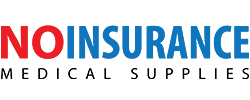Obstructive sleep apnea is a serious sleep disorder that causes you to stop breathing during the night. This occurs as your throat muscles relax and collapse during sleep, causing them to block your airways. Due to the lack of oxygen, your brain will eventually trigger your body to wake up, often gasping or choking for breath.
While it may seem that it would be easy to determine if you have this condition, the vast majority of sleep apnea cases are believed to remain undiagnosed. This is because the person who suffers from sleep apnea will typically fall back asleep almost immediately after they wake up. Even individuals who experience dozens of these awakenings each hour will often not remember that they had any breathing trouble the next morning.
If you share your bed with a partner, they are more likely to notice you gasping or choking, experiencing pauses in breathing while asleep, or snoring loudly. Fortunately, even if this isn’t the case, there are other warning signs you can use to see if you are dealing with obstructive sleep apnea.
Extreme Fatigue

It’s one thing to feel tired after a poor night’s sleep when you stayed up too late celebrating your favorite team’s victory. But with sleep apnea, excessive daytime sleepiness becomes a recurring issue. You’re not just a little sleepy — you are so fatigued that you aren’t sure how you’re going to function. Even more telling, you feel completely exhausted even though you got the recommended seven to nine hours of sleep.
This fatigue often gets to the point where you have trouble concentrating on normal tasks at school or work. People dealing with obstructive sleep apnea may also become more forgetful. You may even begin to fall asleep while watching TV or driving. Needless to say, this could put you at much greater risk of being involved in a serious accident.
Sore Throat
Obstructive sleep apnea will often cause you to start breathing through your mouth during sleep. This can result in a sore throat and dry mouth, which are often worsened by the repeated gasping and choking that occurs during the night as a result of sleep apnea.
While an occasional sore throat in the morning isn’t that unusual (particularly if you sleep with the fan on or when you have a cold), this should hardly be a regular occurrence. As with other symptoms described on this list, if this is something you seem to be experiencing most mornings, you should see if obstructive sleep apnea might be to blame.
High Blood Pressure

Sleep apnea and blood pressure have a complex relationship. During the night, your heart rate slows as your body enters deep sleep. This gives your blood vessels a chance to relax, which helps you maintain a healthy blood pressure.
With sleep apnea, blood pressure (and your body’s stress hormones) spikes each time you wake up. Your blood vessels never get the nightly relief they need, and as a result, your daytime blood pressure will become elevated.
Because of this, individuals who suffer from sleep apnea typically experience what is known as “resistant hypertension,” in which medications aren’t able to improve blood pressure. Consult with your doctor to determine if sleep apnea could be to blame.
Mood Changes
After a bad night’s sleep, most people are more grouchy and irritable than usual. Needless to say, if you are experiencing night after night of poor sleep due to obstructive sleep apnea, mood swings and other forms of emotional turmoil are going to become far more commonplace.
Individuals suffering from obstructive sleep apnea will often easily become annoyed or angry, even over relatively minor things that normally wouldn’t bother them. Depression and anxiety are also far more likely. You may begin to feel overwhelmed by your normal routine, even though nothing else has changed.
Left unchecked, this can easily lead to relationship problems with friends or family. Addressing your poor sleep will help you be happier and treat others better.
Morning Headaches

One unusual symptom associated with obstructive sleep apnea is a morning headache that will go away on its own after several hours. It is believed that these headaches occur because your brain loses access to oxygen during the night, and because of the low-quality sleep you experience.
Sleep apnea-related headaches are distinct from migraines because they typically occur on both sides of the head. You may also experience dizziness when you first wake up. Migraines, on the other hand, are generally concentrated on one side and are usually accompanied by other symptoms, such as nausea, sensitivity to light and sound, and blurred vision.
Get the Help You Need With a CPAP Machine From No Insurance Medical Supplies
If you have experienced these symptoms of obstructive sleep apnea, consulting with a specialist (and potentially scheduling a sleep study) can confirm whether you have the disorder. If this is the case, you will likely be prescribed a CPAP machine. By providing a continuous flow of pressurized air, a CPAP machine keeps your breathing passages open throughout the night so you can enjoy uninterrupted sleep.
The drawback is that CPAP equipment can be quite expensive, particularly if you don’t have good insurance coverage. This is where No Insurance Medical Supplies comes in. In addition to offering discounted prices on CPAP machines, masks, and other necessary equipment, you can take advantage of special financing to make your purchase more affordable.
Don’t let a lack of insurance coverage keep you from mitigating your obstructive sleep apnea. Place your order today so you can get the sleep you need.
